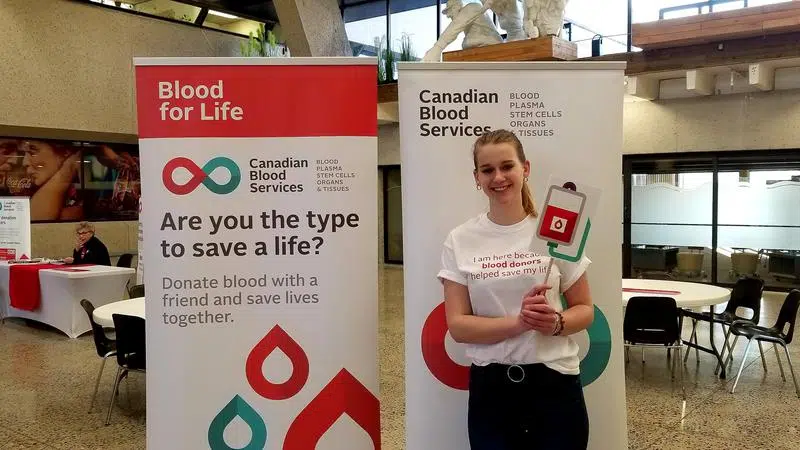
Cancer survivor shares her blood donation story at the U of L
LETHBRIDGE, AB – Taking an hour out of your day can help save a life.
That’s from Kate Potts, who was at the University of Lethbridge Tuesday sharing her story during a Canadian Blood Services blood typing event. Students had the opportunity to learn about their blood type and the donation process.
At the age of four, Potts was diagnosed with acute myeloid leukemia, but after several rounds of chemotherapy and blood transfusions, she survived and has been cancer-free for 17 years.
“Across seven months and four intensive rounds of chemo [chemotherapy], I had over 70 blood transfusions that saved my life. I definitely wouldn’t be here [today] without that,” she told LNN.




